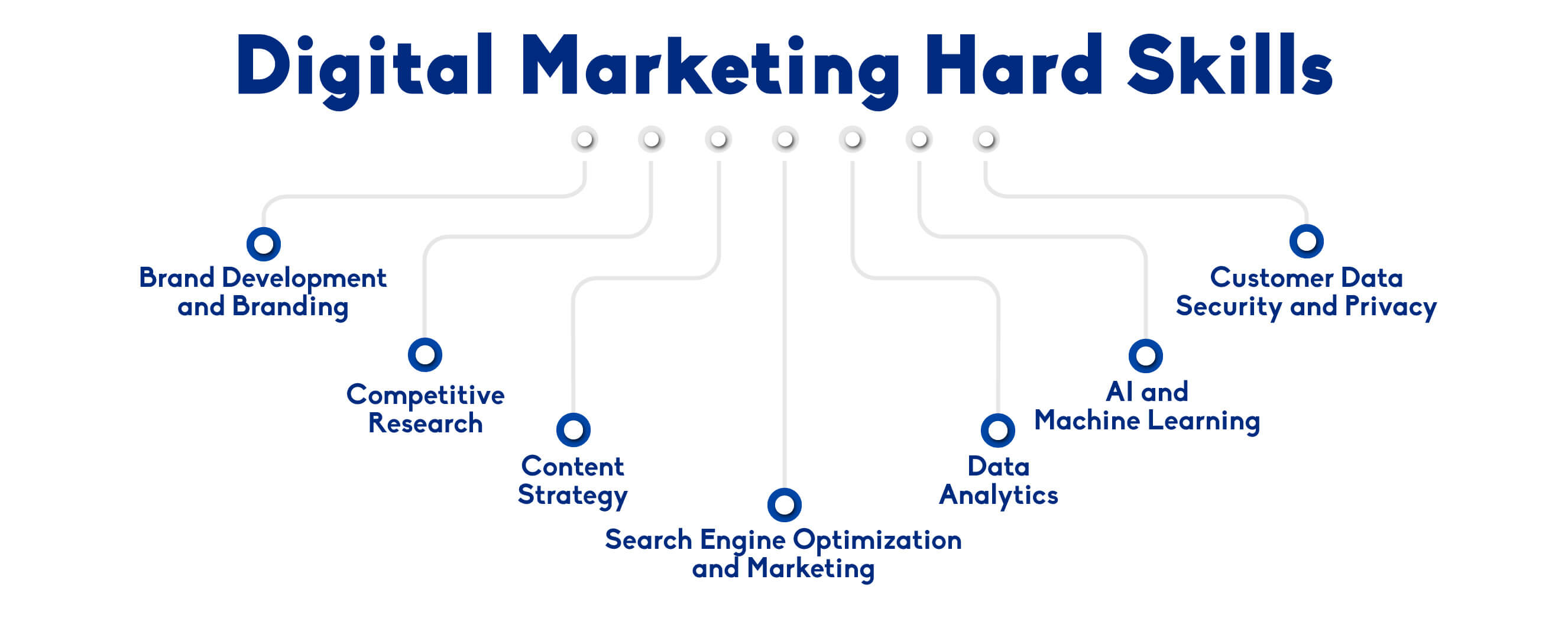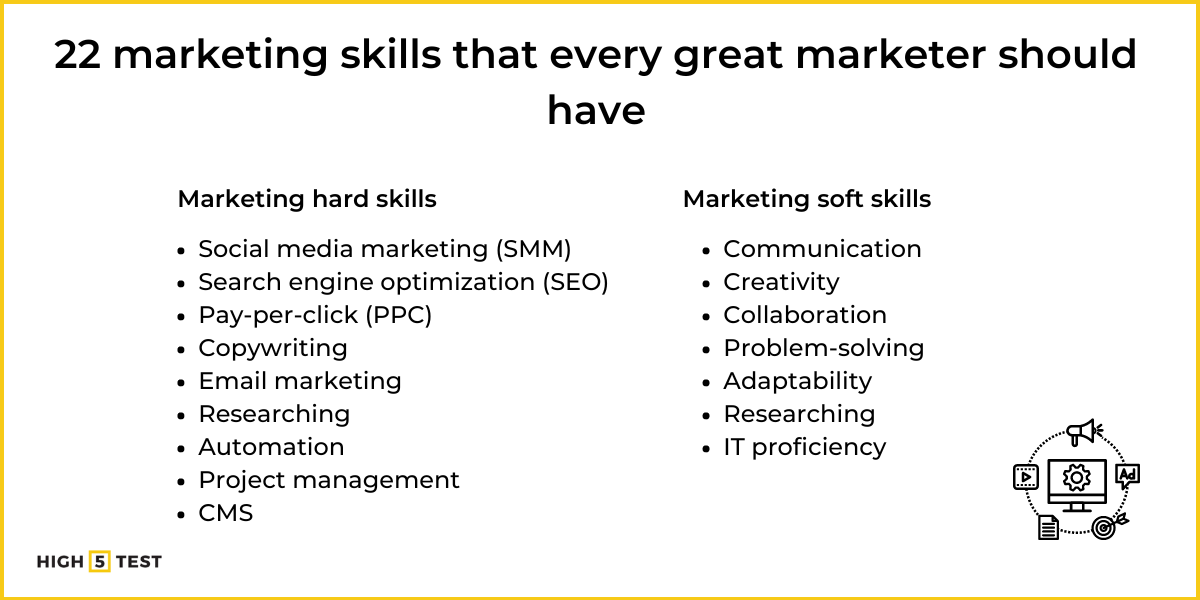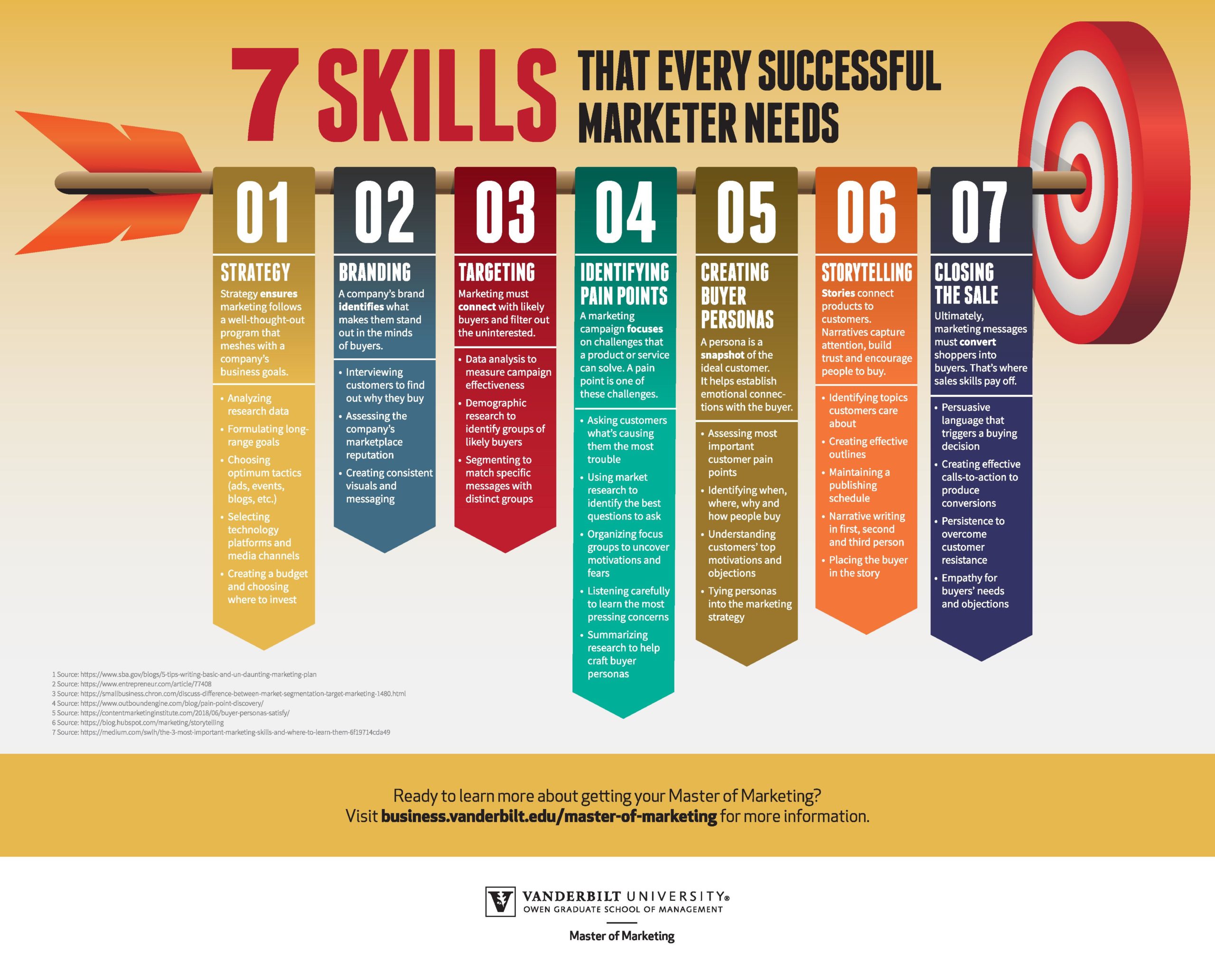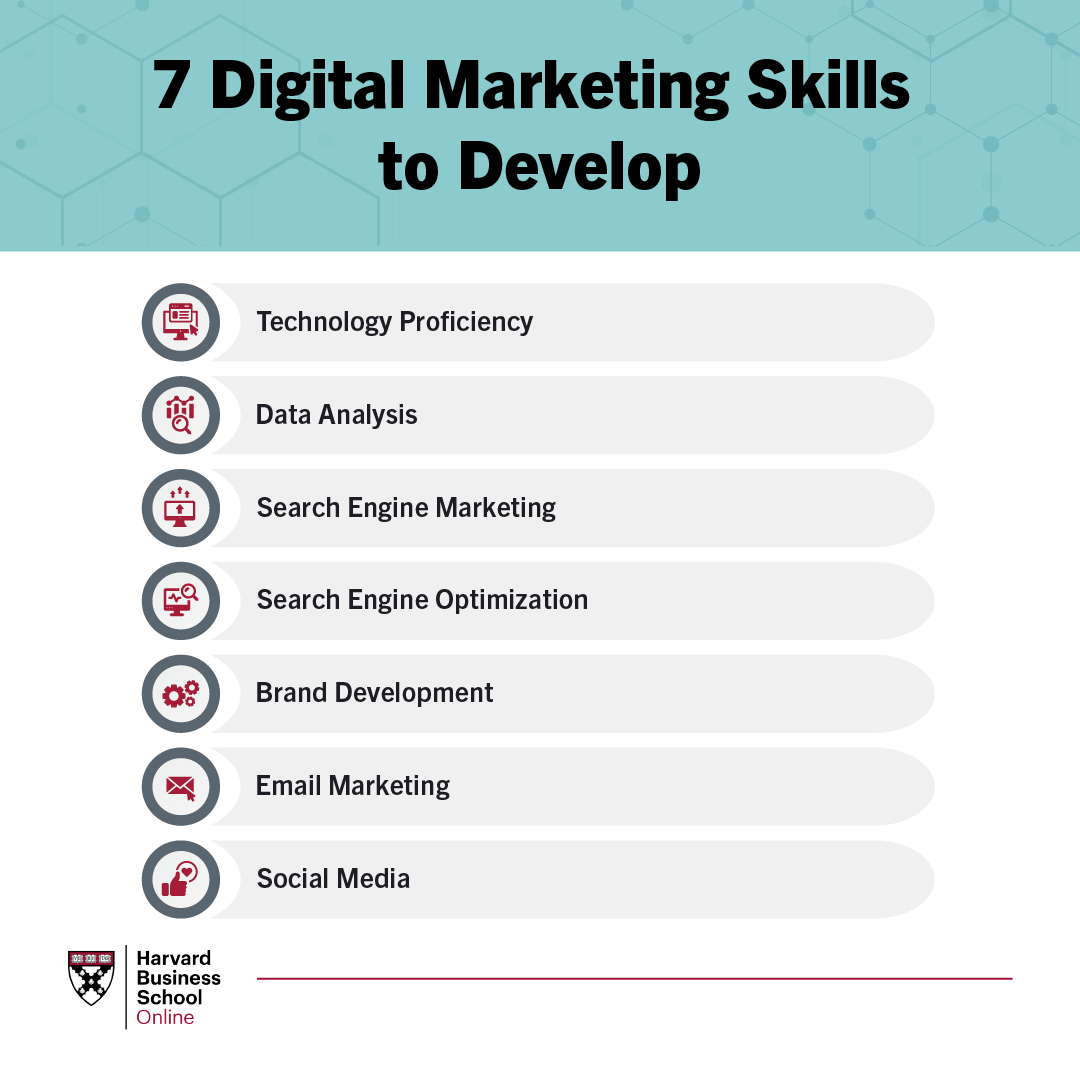- Which Marketing Skills Do Companies Require and Expect?
- What skills are required for marketing?
- What does marketing require people skilled in?
- Which is the most important skill necessary to pursue a job in marketing?
- What skills do you think a marketing professional needs to have to be successful list and explain as many as possible?
- Frequently Asked Questions (FAQ)
In today’s competitive business landscape, companies are increasingly seeking professionals with a diverse set of marketing skills to drive growth and engagement. As consumer behavior evolves and digital platforms dominate, the demand for expertise in areas such as data analytics, content creation, and digital advertising has surged. Employers now expect marketers to not only understand traditional strategies but also adapt to emerging trends like artificial intelligence and personalized marketing. This article explores the essential marketing skills that companies prioritize, highlighting how these competencies align with organizational goals and the ever-changing demands of the modern marketplace.
Which Marketing Skills Do Companies Require and Expect?
Companies today are looking for marketing professionals who possess a diverse set of skills to navigate the ever-evolving landscape of digital and traditional marketing. The demand for marketers who can adapt to new technologies, understand consumer behavior, and drive measurable results is higher than ever. Below, we explore the key marketing skills that companies require and expect, along with detailed explanations and a table summarizing the most relevant skills.
See Also Which Marketing Skills Do Companies Require and Expect?
Which Marketing Skills Do Companies Require and Expect?1. Digital Marketing Expertise
In today’s digital-first world, companies expect marketers to have a strong grasp of digital marketing strategies. This includes proficiency in search engine optimization (SEO), pay-per-click (PPC) advertising, social media marketing, and email marketing. Marketers must also be familiar with tools like Google Analytics and CRM platforms to track and analyze campaign performance. The ability to create and execute data-driven digital campaigns is crucial for driving online visibility and engagement.
2. Data Analysis and Interpretation
Marketing is increasingly data-driven, and companies expect professionals to be skilled in data analysis. This involves the ability to collect, interpret, and leverage data to make informed decisions. Marketers should be comfortable using tools like Google Data Studio, Tableau, or Excel to analyze metrics such as conversion rates, customer acquisition costs, and return on investment (ROI). Strong analytical skills enable marketers to optimize campaigns and demonstrate their impact on business goals.
See Also Seeking insights for Director of Marketing salary expectations.
Seeking insights for Director of Marketing salary expectations.3. Content Creation and Storytelling
Content is at the heart of modern marketing, and companies value professionals who can create compelling content that resonates with their target audience. This includes writing blog posts, designing infographics, producing videos, and crafting social media posts. Effective storytelling is also essential, as it helps brands connect with their audience on an emotional level. Marketers must understand how to tailor content to different platforms and audiences while maintaining a consistent brand voice.
4. Strategic Thinking and Planning
Companies require marketers who can think strategically and develop comprehensive marketing plans. This involves setting clear objectives, identifying target audiences, and selecting the right channels to reach them. Marketers must also be able to anticipate market trends and adjust strategies accordingly. Strong project management skills are necessary to ensure campaigns are executed on time and within budget.
See Also What Are Everyone's Marketing Budgets?
What Are Everyone's Marketing Budgets?5. Communication and Collaboration
Effective communication is a cornerstone of successful marketing. Companies expect marketers to collaborate with cross-functional teams, including sales, design, and product development. This requires excellent interpersonal skills, the ability to present ideas clearly, and the capacity to work well under pressure. Marketers must also be adept at communicating with external stakeholders, such as clients and partners, to build strong relationships.
| Skill | Description |
|---|---|
| Digital Marketing | Proficiency in SEO, PPC, social media, and email marketing. |
| Data Analysis | Ability to collect, interpret, and leverage data for decision-making. |
| Content Creation | Skills in creating engaging content and storytelling. |
| Strategic Planning | Developing comprehensive marketing plans and anticipating trends. |
| Communication | Collaborating with teams and communicating effectively with stakeholders. |
What skills are required for marketing?

 Is Marketing Actually a Good Major? (Serious/Pls Help)
Is Marketing Actually a Good Major? (Serious/Pls Help)1. Communication Skills
Effective communication is the cornerstone of marketing. Marketers must be able to convey ideas clearly and persuasively to various audiences, including customers, team members, and stakeholders. This involves both verbal and written communication, as well as active listening to understand client needs and feedback.
- Writing: Crafting compelling copy for advertisements, emails, and social media posts.
- Public Speaking: Presenting ideas and strategies confidently in meetings or pitches.
- Negotiation: Discussing terms with clients, vendors, or partners to reach mutually beneficial agreements.
2. Analytical Skills
Marketing requires a strong ability to analyze data and interpret results to make informed decisions. This includes understanding market trends, customer behavior, and campaign performance metrics.
See Also What Is a Marketing Campaign?
What Is a Marketing Campaign?- Data Analysis: Using tools like Google Analytics to track and measure campaign success.
- Market Research: Identifying target audiences and understanding their preferences.
- ROI Calculation: Evaluating the return on investment for marketing strategies.
3. Creativity and Innovation
Marketing thrives on creativity and the ability to think outside the box. Marketers must develop unique ideas and campaigns that capture attention and differentiate their brand from competitors.
- Content Creation: Designing engaging visuals, videos, and written content.
- Campaign Development: Brainstorming and executing innovative marketing strategies.
- Problem-Solving: Finding creative solutions to challenges in campaigns or branding.
4. Digital Marketing Expertise
In today’s digital age, proficiency in digital marketing is essential. This includes knowledge of online platforms, tools, and strategies to reach and engage audiences effectively.
- SEO/SEM: Optimizing content for search engines and managing paid search campaigns.
- Social Media Management: Building and maintaining a strong presence on platforms like Instagram, LinkedIn, and Facebook.
- Email Marketing: Designing and executing email campaigns to nurture leads and retain customers.
5. Adaptability and Learning Agility
The marketing landscape is constantly evolving, requiring marketers to be adaptable and eager to learn new skills and technologies.
- Trend Awareness: Staying updated on industry trends and emerging technologies.
- Tool Proficiency: Learning and mastering new marketing tools and software.
- Flexibility: Adjusting strategies quickly in response to market changes or campaign performance.
What does marketing require people skilled in?

Strategic Thinking and Planning
Marketing requires individuals skilled in strategic thinking and planning to develop effective campaigns. This involves:
- Analyzing market trends and consumer behavior to identify opportunities.
- Setting clear objectives and measurable goals for marketing initiatives.
- Creating detailed action plans to achieve desired outcomes.
Creativity and Innovation
Professionals in marketing must possess creativity and innovation to stand out in competitive markets. Key aspects include:
- Designing unique and engaging content that captures audience attention.
- Developing innovative campaigns that differentiate the brand from competitors.
- Experimenting with new ideas and approaches to solve marketing challenges.
Data Analysis and Interpretation
Marketing demands expertise in data analysis and interpretation to make informed decisions. This involves:
- Collecting and analyzing data from various sources, such as customer feedback and sales metrics.
- Using tools like Google Analytics to track campaign performance.
- Translating data insights into actionable strategies to optimize results.
Communication and Storytelling
Effective marketing relies on strong communication and storytelling skills. Key elements include:
- Crafting compelling narratives that resonate with target audiences.
- Delivering clear and concise messages across multiple platforms.
- Building emotional connections with customers through relatable stories.
Digital Proficiency
Modern marketing requires digital proficiency to navigate online platforms and tools. Essential skills include:
- Managing social media accounts and understanding platform algorithms.
- Utilizing SEO techniques to improve search engine rankings.
- Leveraging email marketing and automation tools for targeted campaigns.
Which is the most important skill necessary to pursue a job in marketing?

Understanding Consumer Behavior
One of the most critical skills in marketing is the ability to understand consumer behavior. This involves analyzing how consumers make purchasing decisions and what influences their choices. To excel in this area:
- Research consumer trends and preferences.
- Use tools like surveys and focus groups to gather data.
- Analyze the data to identify patterns and insights.
Effective Communication
Effective communication is essential for conveying marketing messages clearly and persuasively. This skill ensures that the target audience understands and engages with the brand. Key aspects include:
- Developing clear and concise messaging.
- Tailoring communication to different audiences.
- Utilizing various channels like social media, email, and print.
Data Analysis and Interpretation
In today’s data-driven world, the ability to analyze and interpret data is crucial for making informed marketing decisions. This skill helps in measuring campaign effectiveness and optimizing strategies. Important steps are:
- Collecting and organizing data from various sources.
- Using analytical tools to identify trends and metrics.
- Translating data insights into actionable strategies.
Creativity and Innovation
Creativity and innovation are vital for developing unique marketing campaigns that stand out in a crowded marketplace. This involves:
- Brainstorming new ideas and concepts.
- Experimenting with different creative approaches.
- Staying updated with the latest trends and technologies.
Strategic Thinking
Strategic thinking is necessary for planning and executing marketing campaigns that align with business goals. This skill involves:
- Setting clear objectives and KPIs.
- Developing comprehensive marketing plans.
- Adjusting strategies based on performance and market changes.
What skills do you think a marketing professional needs to have to be successful list and explain as many as possible?

Analytical and Data-Driven Skills
Marketing professionals must possess strong analytical skills to interpret data and make informed decisions. This includes the ability to analyze market trends, consumer behavior, and campaign performance. Key skills include:
- Data analysis: Proficiency in tools like Google Analytics, Excel, or Tableau to track and interpret data.
- Critical thinking: Ability to evaluate data and draw actionable insights.
- ROI measurement: Understanding how to calculate and optimize return on investment for campaigns.
Creativity and Innovation
Creativity is essential for developing unique campaigns that capture audience attention. Marketing professionals should be able to think outside the box and innovate. Key skills include:
- Content creation: Ability to produce engaging and original content for various platforms.
- Visual storytelling: Using visuals, videos, and graphics to convey brand messages effectively.
- Problem-solving: Finding creative solutions to marketing challenges.
Communication and Interpersonal Skills
Effective communication is crucial for collaborating with teams, clients, and stakeholders. Marketing professionals must be able to convey ideas clearly and build relationships. Key skills include:
- Written communication: Crafting compelling copy for ads, emails, and social media.
- Verbal communication: Presenting ideas confidently and persuasively.
- Active listening: Understanding client needs and feedback to improve strategies.
Digital Marketing Expertise
In today’s digital age, marketing professionals must be well-versed in online strategies and tools. This includes understanding various digital channels and how to leverage them. Key skills include:
- SEO and SEM: Optimizing content for search engines and managing paid search campaigns.
- Social media management: Creating and managing campaigns on platforms like Facebook, Instagram, and LinkedIn.
- Email marketing: Designing and executing effective email campaigns to nurture leads.
Strategic Thinking and Planning
Marketing professionals need to think strategically to align campaigns with business goals. This involves setting objectives, planning, and executing effectively. Key skills include:
- Goal setting: Defining clear and measurable objectives for campaigns.
- Market research: Understanding target audiences and competitors to inform strategies.
- Project management: Organizing and managing resources to meet deadlines and budgets.
Frequently Asked Questions (FAQ)
What are the most in-demand marketing skills companies look for?
Companies today seek professionals with a strong grasp of digital marketing, including expertise in search engine optimization (SEO), social media marketing, and content creation. Additionally, skills in data analysis and customer relationship management (CRM) are highly valued, as businesses aim to make data-driven decisions and build lasting customer relationships. Proficiency in marketing automation tools and the ability to adapt to emerging technologies are also critical in today's fast-paced market.
Why is data analysis considered a crucial marketing skill?
Data analysis is essential because it enables marketers to measure campaign performance, identify trends, and make informed decisions. Companies expect marketers to use tools like Google Analytics or Tableau to track key metrics such as conversion rates, customer engagement, and return on investment (ROI). By leveraging data, marketers can optimize strategies, allocate budgets effectively, and demonstrate the impact of their efforts to stakeholders.
How important is creativity in modern marketing roles?
Creativity remains a cornerstone of successful marketing, as it drives brand differentiation and customer engagement. Companies value marketers who can craft compelling storytelling, design visually appealing content, and develop innovative campaigns that resonate with target audiences. While technical skills are important, creativity ensures that marketing messages stand out in a crowded digital landscape, fostering emotional connections with consumers.
What role does adaptability play in marketing careers?
Adaptability is critical in marketing due to the rapid evolution of technology and consumer behavior. Companies expect marketers to stay updated on industry trends, such as the rise of artificial intelligence (AI) or changes in social media algorithms. Being adaptable also means embracing new tools, platforms, and strategies to remain competitive. Marketers who can pivot quickly and learn new skills are better equipped to meet the dynamic demands of the industry.
Leave a Reply


Articles of interest